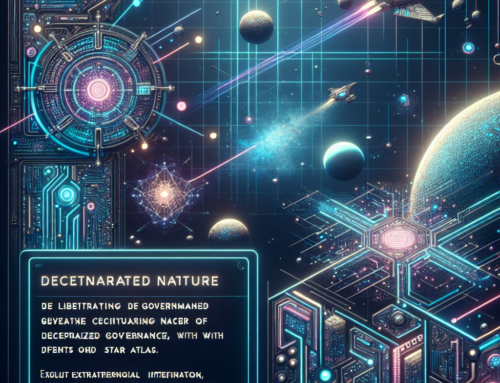Kleptocracy in Star Atlas: Insights by Titan Analytics

In the fascinating universe of Star Atlas, where vast space empires vie for control and resources, the concept of kleptocracy emerges as a critical lens through which we can assess the dynamics of power and wealth. At Titan Analytics, we specialize in dissecting these intricate relationships and provide insights into the game’s economy and governance. Let’s dive into the idea of kleptocracy and see how it plays out in the Star Atlas universe.
What is Kleptocracy?
Kleptocracy is derived from the Greek words "kleptein," meaning to steal, and "kratos," meaning power or rule. In essence, it refers to a government or state in which those in power exploit their authority to embezzle resources and concentrate wealth. In many historical and contemporary contexts, kleptocratic regimes prioritize personal enrichment over the welfare of their citizenry, leading to economic disparity, corruption, and societal strife.
Kleptocracy in Star Atlas
In Star Atlas, players navigate a rich tapestry of alliances, conflicts, and economies. The game recognizes the allure of power and wealth, showcasing how leaders can accumulate vast fortunes and influence through shrewd decision-making, strategic partnerships, and sometimes, unscrupulous tactics.
-
The Power Dynamics: As factions vie for dominance, players must navigate the murky waters of alliance-building and betrayal. Those who hold significant resources or insights can sway the balance of power in their favor, reshaping the game’s political landscape. This can often mirror the behavior seen in kleptocratic systems, where the elite consolidate power while neglecting the needs of the broader community.
-
Economic Exploitation: In-game mechanics allow for the extraction of resources, which can lead to concentration in the hands of a few. Players who dominate resource mining or trade can create scenarios reminiscent of kleptocratic regimes, where wealth is siphoned off to a select group. This creates a ripple effect in gameplay, impacting lower-tier players and their ability to compete.
- Governance and Control: Star Atlas introduces governance mechanisms where players can vote on critical decisions. However, this poses the risk of manipulation from those with the most staked resources. When a small group holds the majority of votes, they can exert control akin to a kleptocracy, making decisions that favor their own interests rather than the community as a whole.
Insights and Implications
Understanding the kleptocratic tendencies in Star Atlas prompts players and analysts to consider the implications of wealth and power dynamics. While opportunistic strategies can yield short-term benefits, they may lead to longer-term instability and discontent within the player base. Acknowledging these elements can foster a more balanced and equitable in-game economy.
At Titan Analytics, we encourage players to utilize our data modules to gain deeper insights into the economic activities within Star Atlas. By leveraging our analytics tools, gamers can make informed decisions, recognize patterns of wealth distribution, and engage in a more strategic manner.
Explore Titan Analytics
For a comprehensive breakdown of economic data and player insights, visit our Star Atlas data modules at titananalytics.io/modules. If you have questions or want to learn more about how we can help enhance your Star Atlas experience, don’t hesitate to reach out at titananalytics.io/contact. Join us in exploring the vast potential of Star Atlas and uncover the intricacies of its thriving economy!




